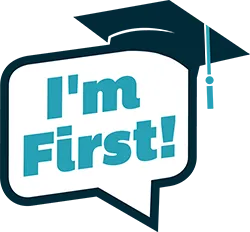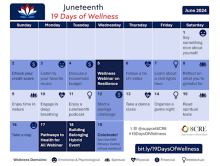
If you are the first in your family to attend college, you may have already experienced some challenges or concerns like: not knowing many contacts in the fields of science or medicine through your circle of family and friends or feeling like an imposter and wondering if you really belong in various professional groups or meetings. You are not alone. Research shows that first generation college students often have concerns like these, but research also highlights many of the strengths which first generation students bring to their lives and careers including:
- Resilience after coping with obstacles and challenges
- Appreciation for opportunities
- Persistence to achieve goals in spite of difficult circumstances
- Adaptability in the face of change
It is extremely important to take advantage of the resources around you. Here are some strategies to develop confidence and move ahead: Learn how to develop professional career networks You can learn how to how to develop and strengthen your professional/career networks. Research has shown that specialized support programs can be very helpful to first generation college students. If you are in training at NIH, you have access to numerous free support programs and resources to help you learn how to build professional networks:
- Learn about informational interviewing as a first step in the networking process.
- Watch videocasts to learn about networking.
- Contact former NIH trainees for advice about their career paths. The NIH Alumni Database lists many scientists who initially were post-bacs, graduate students and post-docs at NIH. You may contact them directly to get advice about their career fields.
Incorporate your personal values into your career choices For first generation college students, sometimes there is a gap between family experiences/values and the demands of a career and degree process. If you struggle with how to manage this gap, there are two things you can do to help clarify your values and to move ahead toward your goals:
- Attend the workshop, Planning for Career Satisfaction and Success as this will help you understand how your personal interests, skills, and values contribute to your future career success
- Make an appointment to meet with a career counselor to explore your own career interests, values and skills.
Identify how mentoring can help you build your own community in science Start by reflecting on the kind of mentoring you think will help you progress in your career. If you are unsure, read some articles to find out what makes a good mentor.
- Reach out to finds groups that will support you. A large part of feeling comfortable in your career and work environment is having a community to share the experience. The NIH is a big place. Groups like the ones listed here will help you to find a community that will help you to feel at home.
Let OITE staff know how we can help you during your training time at NIH It’s not always easy to reach out for help and support. In the Office of Intramural Training and Education, we are excited to have you here at NIH and want to do everything we can to help you be successful .
- Start by talking with a career counselor to begin your career planning or reach out to another OITE staff member. We can help you to take the next step to a successful career.




